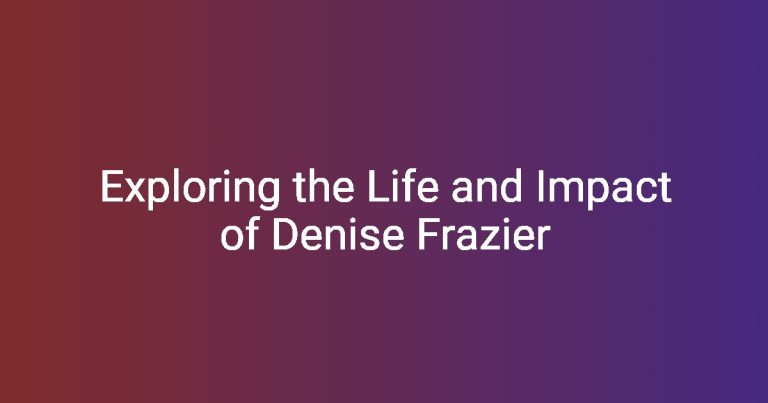Recognizing and understanding emotional communication is crucial in any relationship. When a guy says, “I need you”, it can evoke a mixture of feelings, questions, and sometimes confusion. This phrase often signifies an emotional vulnerability that carries depth and significance, calling for thoughtful consideration in how to respond.
The significance of this declaration can range from a simple expression of distress to an outright plea for connection and support. In navigating such moments, knowing how to respond when a guy says “I need you” can help in fostering emotional intimacy and deeper connections. This article aims to provide guidance on effective responses, ensuring that both parties feel heard and valued while maintaining a healthy relationship dynamic.
Understanding the Context
Analyzing the Relationship Dynamics
The first step in understanding how to respond when a guy says “I need you” is recognizing the context of your relationship. Is he a partner, a close friend, or a family member? Consider the depths of your current relationship and any significant history you share. Each dynamic can fundamentally alter the implications of his words.
Moreover, assess his emotional state. Is he experiencing vulnerability or stress? Understanding the underlying emotions can clarify the reasons behind his need for support and influence how best to respond.
The Meaning Behind “I Need You”
Delving deeper, the phrase “I need you” can express emotional needs that extend beyond practical requirements. It may hint at feelings such as fear, loneliness, or a desire for commitment. Recognizing these potential underlying emotions can provide insight into how you should approach the situation.
Furthermore, it’s essential to differentiate between emotional dependency and healthy reliance. Emotional dependency can strain relationships, while healthy reliance fosters mutual support and understanding.
Assessing Your Feelings
Reflecting on Your Emotional State
Before crafting a response, take time to reflect on your feelings regarding his declaration. How do you feel about his statement? Are you comfortable with the level of need he is expressing? Understanding your own emotions can significantly impact how you respond to him.
Additionally, evaluate your own needs and boundaries. Are you in a place where you can adequately support him while being attentive to your own well-being?
Considering Your Relationship Goals
As you think about how to respond when a guy says “I need you,” consider your relationship goals. What do you want from this relationship? Aligning your response with your values and boundaries is critical. Establishing a balance where both parties feel supported and valued promotes healthy interactions and strengthens connections.
Mutual support is vital; however, it is equally important to manage dependence to avoid emotional drains that can lead to resentment.
Crafting Your Response
Communication Tips
Communication, especially in emotionally charged situations, requires skill. Implement active listening techniques to ensure he feels heard. This includes:
– **Paraphrasing what he said** to confirm your understanding.
– **Asking open-ended questions** for further clarity, which demonstrates your engagement and willingness to understand his perspective.
Express empathy and understanding are crucial. Validating his feelings helps him feel supported without fear of judgment or criticism. Acknowledge his emotional expression genuinely to strengthen the bond.
Examples of Responses
Depending on the nature of your relationship, responses can vary from casual to more supportive:
**Casual Responses**:
– “That sounds tough. How can I help?”
– “I’m here for you, what do you need?”
**Supportive Responses**:
– “I really appreciate that you feel you can count on me.”
– “I care about you, and I’m here to support you.”
**Setting Boundaries**:
– “I want to support you, but I also need to ensure I’m okay.”
– “It’s important for both of us to maintain our independence.”
Creating a balanced response acknowledges his need while staying aligned with your personal boundaries.
Handling Different Outcomes
Positive Reactions
Responding well to such a declaration can lead to positive outcomes, including:
– Building deeper intimacy in the relationship.
– Strengthening the relationship through shared vulnerability.
– Opportunities for mutual support that solidify trust and emotional connection.
Such productive engagement can pave the way for healthier communication patterns in the future.
Negative Reactions
However, not all responses may be positive. If you find yourself feeling discomfort or concerns after his declaration, addressing these feelings is essential.
Establishing healthy boundaries is key in such situations. Clearly communicate your feelings while affirming your commitment to be there for him.
In some cases, seeking professional help may be beneficial, particularly if the emotional dynamics are too overwhelming for either party to handle.
Conclusion
In summary, understanding how to respond when a guy says “I need you” involves considering the context of your relationship and reflecting on your feelings. Crafting thoughtful responses can facilitate open communication and lead to healthier emotional connections. Recognizing and respecting boundaries while offering support is essential in nurturing these relationships.
Emotional declarations like this one carry weight, and responding thoughtfully can transform these moments into opportunities for growth and intimacy.
Additional Resources
For further reading on effective communication and relationship management, consider exploring:
– Psychology Today: Communication Basics
– Gottman Institute: Relationship Research and Resources
Frequently Asked Questions
- How do I know if his needs are excessive? It’s important to look out for signs of emotional dependency and ensure that it’s a two-way street in support.
- Can I express my own needs at the same time? Yes, it’s vital to maintain open lines of communication regarding each other’s needs.
- What if I feel overwhelmed by his needs? Communicate your feelings honestly and establish what you can and cannot do to support him.
- How can I support him without losing my independence? Set clear boundaries and communicate them effectively while being supportive.
- What if I don’t feel the same way? It’s okay to express your feelings gently; honesty is essential in maintaining a healthy relationship.
- Are there professional resources available for handling these situations? Yes, consider seeking counseling or support from relationship experts.
Table Summary
| Aspects | Considerations | Examples |
|---|---|---|
| Relationship Type | Partner, Friend, Family | Contextual responses based on relationship depth |
| Emotional State | Vulnerable, Stressed | Adjusting response based on emotional analysis |
| Your Feelings | Comfort, Needs, Boundaries | Reflecting on how his statement affects you |
| Response Types | Casual, Supportive, Boundary Setting | Tailoring responses based on relationship dynamic |
| Potential Outcomes | Positive, Negative | Building intimacy vs. requiring boundaries |
Reflecting on the above points can provide clarity on navigating this emotional landscape while ensuring healthy communication and personal boundaries.



